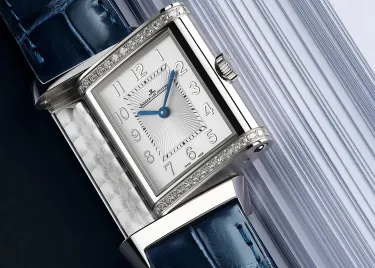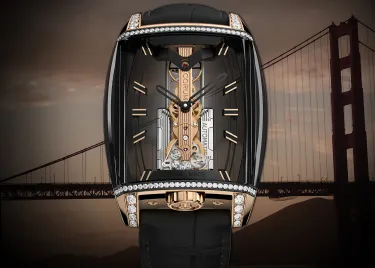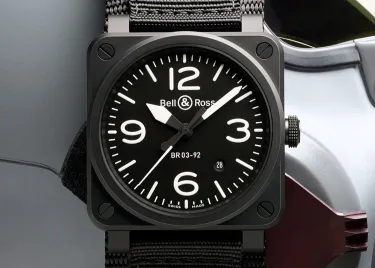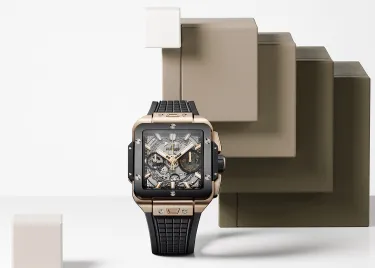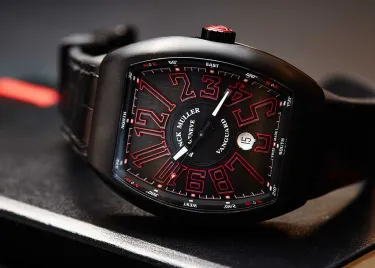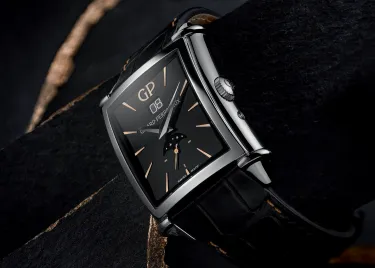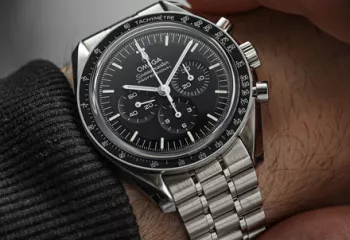Focus
Getting out of the (round) frame!
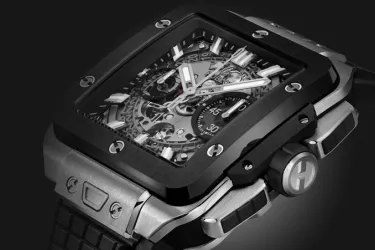
Who said that watchmaking was going in circles? Even if the round case concerns almost all watches, several brands propose very different formats. And adopting them sometimes means leaving your comfort zone.
Why is the watch mostly round? For two reasons. The first is historical: the pocket watch was itself round, because it was more practical to slip into a pocket, let's face it. Second reason: the basic component of the watch is itself circular: the wheel ! Mechanically, the movement, which is only composed of wheels, adopts its own geometry.
The Art Deco opening
However, quite quickly in the history of watchmaking, different brands proposed different lines. It is mainly the Art Deco movement that has emancipated the watch from its round format. The most representative icon is called Reverso by Jaeger-LeCoultre. Not only is it one of the most significant examples of a rectangular watch, but it also has the particularity of having a movement that is also rectangular! This is what we call a shaped movement. It perfectly fits the contours of the case that houses it. Created in 1931, the Reverso is still in the catalogue. And you can discover its history in a previous article.
Golden Bridge, the "movement-watch”
In a somewhat similar approach, where it is the movement that dictates its shape to the case and not the other way round, it is necessary to mention the extraordinary Golden Bridge by Corum. Forty years ago, the La Chaux-de-Fonds brand offered a tailor-made case to an exceptional calibre, the "baguette movement", designed by the brilliant watchmaker Vincent Calabrese. A true work of horological art, it is also still in the catalogue.
Several companies have asserted themselves with geometries that have almost become their signature. This is the case of Bell and Ross . You don't need to be a watchmaking expert to recognize a case designed by the brand: a perfect square! With its generous dimensions, this case has become a real specificity of the brand over the last twenty years.
However, it was not the first, nor the last. Not the first, because already in 1969, the famous Maison Heuer had unveiled its famous Monaco, with its electric blue dial and, within it, the first automatic chronograph in history. A fairly revolutionary piece, square, but perhaps too anticipatory and which did not immediately know the expected success, before coming back in force at the turn of the 21st century. Not the last one either, because only a few months ago, the Hublot manufacture unveiled a surprising Square Bang. Massive, imposing, very "Hublot", this watch deploys the last shape that the brand had not explored, the square.
One Thousand "tonneaux"
A similar phenomenon occurred with Richard Mille. Also contemporary, the prestige label has appropriated the tonneau watch with a dazzling speed that has taken the industry by surprise - even brands that used the tonneau long before Richard Mille, like Franck Muller . Several smaller brands are now trying to follow suit, such as Cvstos or, more recently, Bianchet.
Jewellery freedom
Finally, the jewellery houses have less difficulty in breaking out of the perfect circle of the watch. Chanel demonstrated this with its Boy.Friend . The Italian jeweller Bulgari has also dynamised the codes of the extra-flat watch with an unusual octagonal creation: the Octo Finissimo . As its name indicates, the case is not round, but octagonal.
Is it new? Far from it: the piece has simply transposed on its case the geometry of bezels with cut sides that made the most beautiful hours of watchmaking, with the eternal Royal Oak or the Laureato of Girard-Perregaux , which also explores the rectangle with its Vintage 1945 collection.
Going from the round to the square is not an easy task! But all these brands have dared, and they have succeeded rather well.
